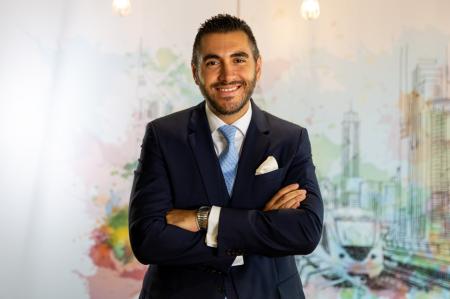With the vast majority of UAE business leaders (80%) developing flexible and remote working models, they are simultaneously focused on ensuring employees continue to feel included regardless of location, according to new research from LinkedIn, the world’s largest professional network. As the UAE witnesses an increase of 202% in remote job postings, developing systems for a well-rounded employee experience is vital.
The study of 110+ C-level executives in the country – at companies with 1,000+ employees and $250+ million annual turnover – finds that as businesses look to offer hybrid work models, the biggest concern for leaders is that employees working from home may feel it’s harder to climb the career ladder, and a ‘proximity bias’ may arise where decision makers in the organization positively favour employees that are regularly seen at work (33%).
Out of sight – out of mind?
Visibility can play an important role in getting ahead. In a complementary employee sentiment survey conducted in the UAE and KSA by LinkedIn, respondents expressed concern around the stigma associated with working remotely. No matter how productive they feel they are, employees who are working remotely feel they suffer from a lack of facetime with colleagues and managers, which negatively impacts promotions, and ultimately stalls careers (65%).
When discussing presenteeism in their teams, nearly 35% of the UAE C-suite mentioned that they found it difficult to trust employees to do their work and collaborate effectively when they are not physically present in the office.
This brings to the fore the need of the hour: trust and unbiased inclusivity is the foundation of a solid hybrid workplace policy.
Ali Matar, Head of LinkedIn MENA and EMEA Emerging Markets said: “Even as most companies rethink their work models, we are seeing a rise of presenteeism that is threatening the greater flexibility we have achieved over the last 20 months. The only way around this is by putting people first and making them feel included, regardless of their location. Both employees and businesses will benefit from evolving workplace policies such as learning and new performance reviews metrics that prioritize people while solving for productivity at the same time: These two are not mutually exclusive. Our research shows that 80% of business leaders in the UAE have plans to provide guidance for what hybrid or flexible working will look like for their teams, and that is a great start. It is clear that businesses are striving to move away from proximity bias and embrace a truly inclusive culture.”
Revamping inclusivity and diversity
UAE leaders cited building an inclusive culture and helping employees adapt to new working styles as their key priorities.
In fact 84% are optimistic that new hybrid working models will also improve workforce diversity as 64% prioritize virtual interviews and recruitment of top talent who traditionally would not have been able to come to the office. As a result, the talent pool is set to grow exponentially.
Furthermore, nearly 50% of c-suite surveyed expressed that they are ensuring middle management lead with empathy, trust and assume positive intent to avoid any biases forming on where people choose to work.
Learning and development for the future of work
Around 80% of executives say they intend to introduce training courses for managers to work effectively in flexible working environments. 54% of leaders stated that they are also prioritizing community-based learning that allows their teams to come together from anywhere for a shared learning experience.
To help organisations build inclusive workplaces, LinkedIn is:
- Making a number of LinkedIn Learning courses available for free:
- Unconscious Bias
- Diversity, Inclusion, and Belonging
- Skills for Inclusive Conversations
- Coaching Skills for Leaders and Managers
To help people find jobs that match their working preferences, LinkedIn has launched:
- New #OpenToWork profile photo frames to help members signal to hiring managers the hybrid, remote or onsite roles they are interested in.
- Service Pages – a new way for members to set-up and manage all their projects as a freelancer directly from their LinkedIn profile.

